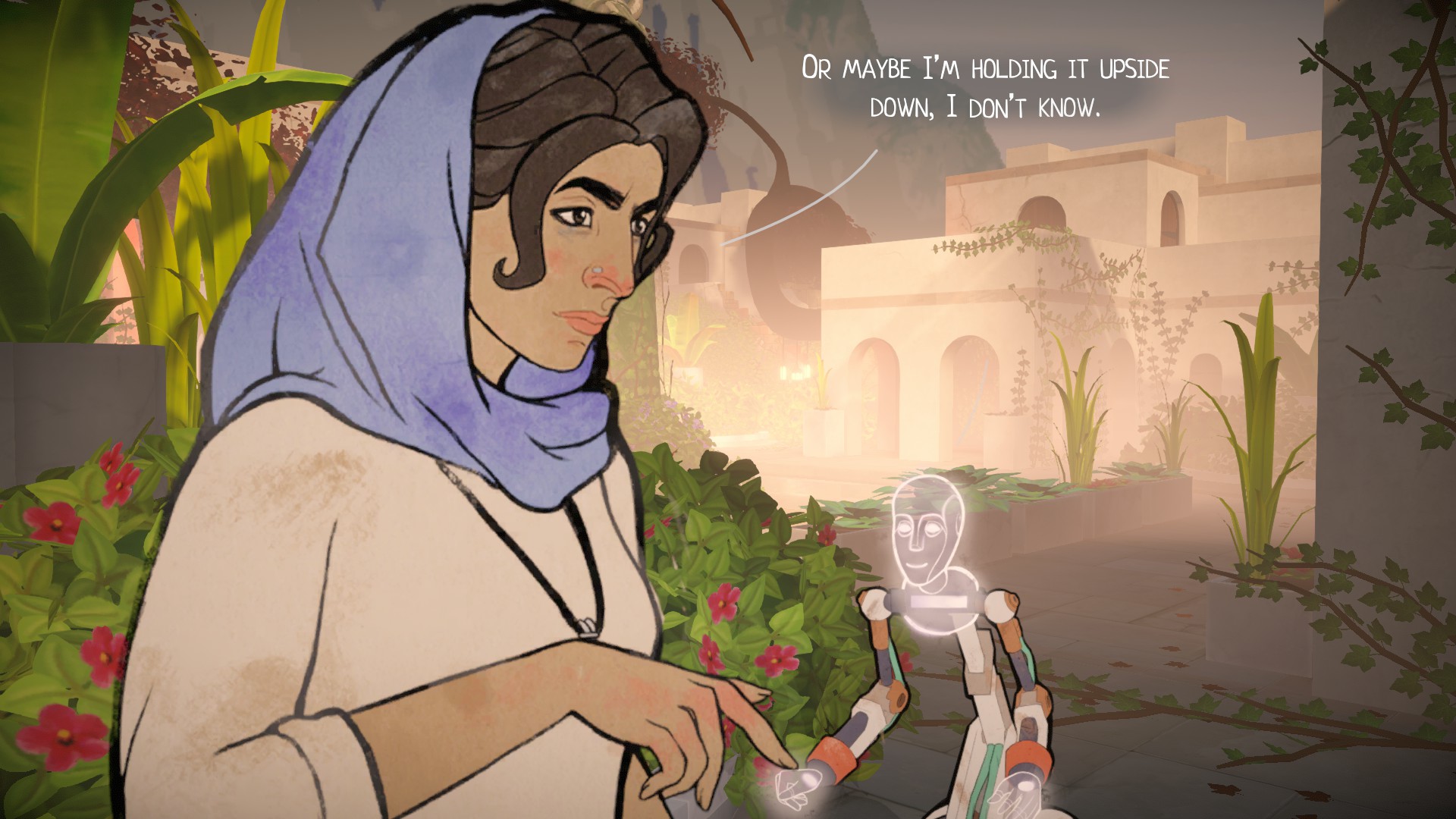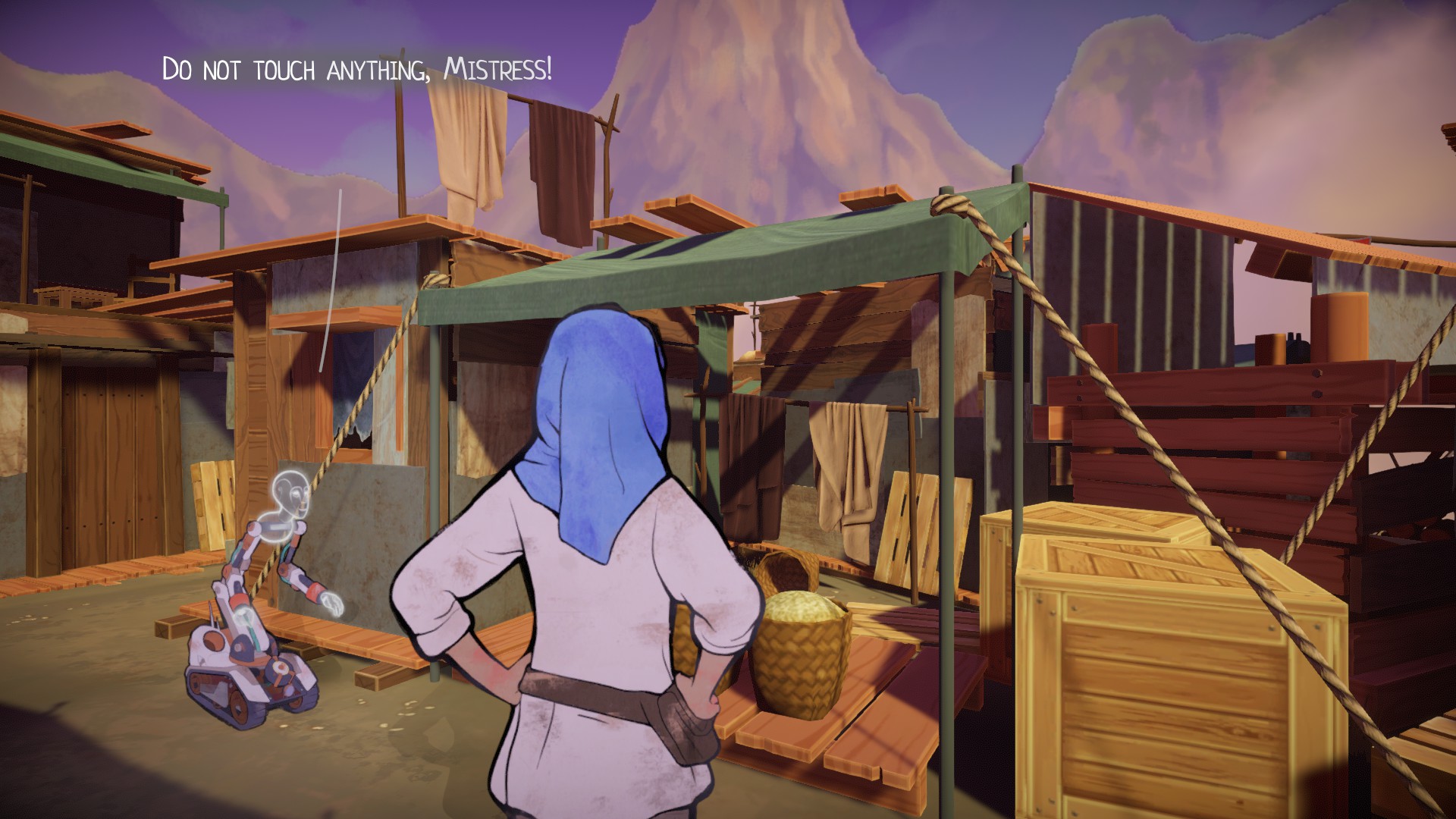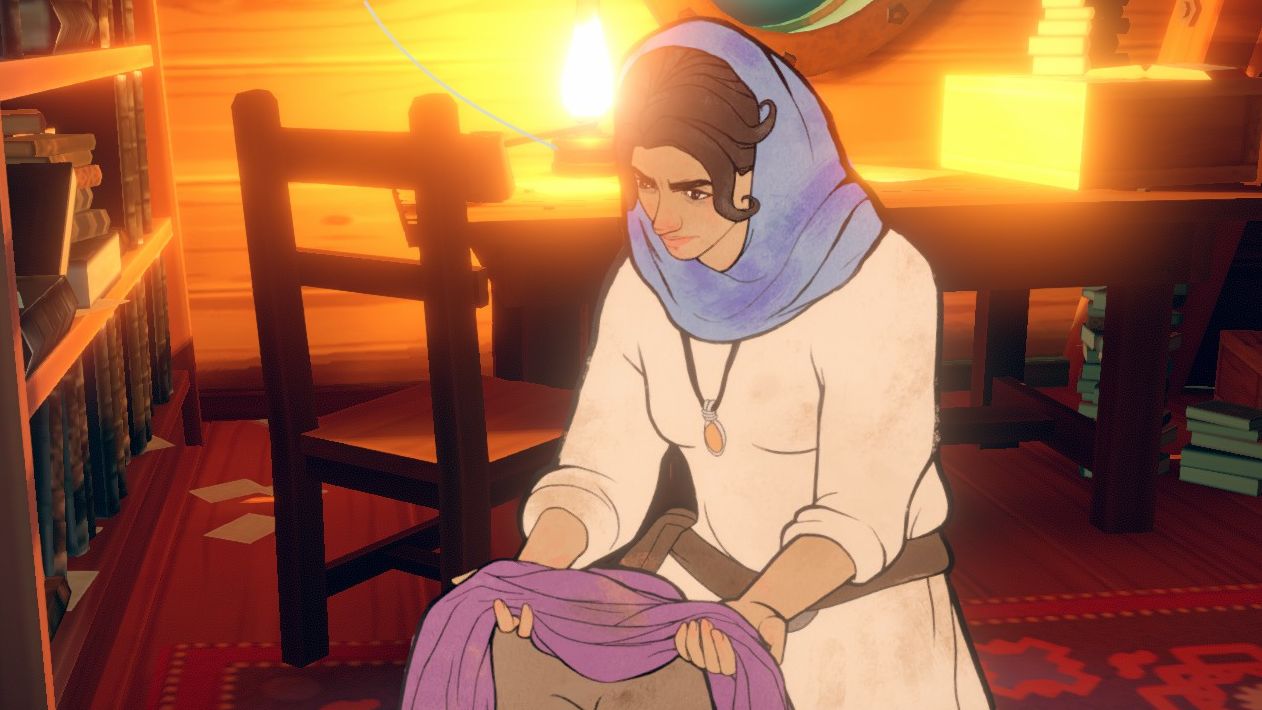Our Verdict
Heaven's Vault communicates the beauty of assigning meaning to symbols, and thus the people who wrote them.
PC Gamer's got your back
What is it? An archaeological code-breaking mystery.
Expect to pay: $25/£20
Developer: inkle Ltd.
Publisher: inkle Ltd.
Reviewed on: Core i5-8400k, 8GB RAM, GTX 1060, Windows 10
Multiplayer: None
Link: Official site
Heaven's Vault is exquisite. I've finished my first playthrough of the archaeological sci-fi adventure, so the main narrative mysteries like "What happened to roboticist Janniqi Renba?" and "What exactly is Heaven's Vault?" are known. The reason I immediately headed into New Game Plus is that the real puzzle at the heart of Heaven's Vault is translating the world's Ancient hieroglyphics. That's still unfolding and it's absolutely stunning.
As archaeologist Aliya Elasra I've sailed the cosmic rivers of the Nebula in my wooden spaceboat. I've docked at distant moons, pottered around farms and markets, and chatted with a varied cast of characters, including many little exchanges with my companion robot, Six. (Don't ask what happened to One through Five). The story mysteries provide a structure to guide your explorations but for me they were always secondary to the joy of collecting new text fragments and teasing out new meanings.
Finding text fragments happens in a number of ways. There are artefacts with carved inscriptions—weapons, oil burners, lintels, sculptures… There are fragments of books. There is graffiti. There are murals. Some are obvious thanks to the UI immediately marking them out on the screen as areas to interact with. Others only appear if you explore the nooks and crannies of an area.

When you find one you'll see it laid out on the screen as a string of symbols. The raw form is scripta continua—there are no spaces to separate words—so part of the puzzle is actually affixing meaning to particular groups of symbols and part of it is figuring out how to apply those symbols.
To give you an example in English, say you had a string of text with no spaces which included the letters: "... T O G E T H E R…" Part of decoding the meaning is figuring out if those should be read as "together" or "to get her".
At first context clues will be your main guide. If Aliya describes an artifact as also featuring the sign of the Empire, the word Emperor or Empress might appear. If the object has an obvious function, like a place of worship or a weapon, that might help too. You might also just look at the options the game provides and try to make the most natural-sounding sentence out of those.
If your translation makes sense in multiple contexts Aliya will change it from a speculative meaning to a definite translation in her dictionary. These come in really handy because when you're dealing with unfamiliar words the game will show you words with similar symbols from your dictionary which might be related.
One of the many things I love about this system is that it works on two levels. On one, you can pick your way through the game's language using approaches like context clues, educated guesses, and by matching the shapes of words you already know to new fragments until the game tells you you've worked out where the breaks between words are.

For the hardcore grammar/linguistics/logic nerds (HOLLER!) you can grab your notebook and deduce more nuanced systems. At one point I took a break from visiting locations to pick through my dictionary and established that there are markers denoting the past-tense, signaling adjectives and verbs, and indicating that two concepts are tied to one another. My most insufferably smug moment was being able to translate fragments which Heaven's Vault wouldn't let Aliya decipher in-game yet.
New Game Plus allowed me to start again but keep my existing dictionary. To keep up with my expanded knowledge the fragments are longer and more involved this time which is exciting! I'm also playing as more of a jerk so my interactions and choices are a little different.
Heaven's Vault is not perfect. Sometimes info added to the in-game historical timeline is a little out of sync with what the character has learned from the conversation. The river is clunky to navigate and sometimes tells you you've gone the wrong way despite following Six's directions. Character reactions don't always make emotional sense. The camera settles in odd places. Aliya's knowledge of Ancient feels too small at the start. Walking around the moon of Elboreth is annoying. Oh, and sometimes trawling for artefacts feels very pixel-hunty. For me none of these are more than minor irritants, but I know others found them more abrasive.
There's also the animation system. I really like it but I know that's not universal. If you stand still and then start walking again you'll see a ghostly image of Aliya in the spot where you paused for a second or two before it fades. To me that's a nod to the game's archaeology theme. Aliya's presence leaves imprints in the world, perhaps footprint or scent. They fade fast, but they're on the same spectrum as the artefacts.
Heaven's Vault does a beautiful job of letting you unlock a language, and thus a dialogue of sorts, with the past, via a wonderfully engaging protagonist.
Heaven's Vault communicates the beauty of assigning meaning to symbols, and thus the people who wrote them.


